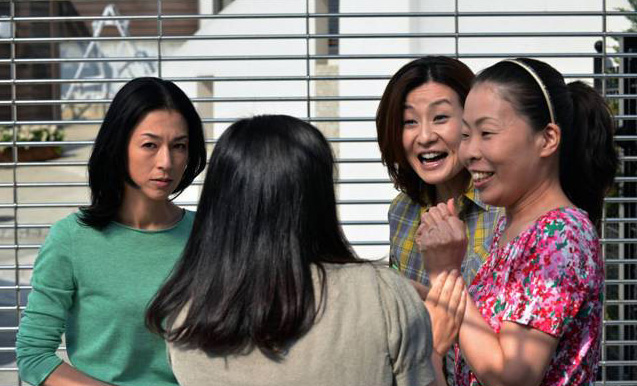"Kazoku Game (The Family Game)," directed by the late Yoshimitsu Morita and released in 1983, remains a movie milestone. A cynical black comedy, it presented to the world a distillation of the less edifying social outcomes of Japan's postwar economic miracle. The Numata family are invaded by a private tutor named Yoshimoto (Yusaku Matsuda), who reveals the mendacity undergirding their idealized middle-class existence. He has been hired to get the younger of the two Numata boys, Shigeyuki, into a good high school, which he does through intimidation and coercion, and in the process shows how conventional scholastic endeavor merely prepares students for the conformity of the salaryman life embodied by their father (Juzo Itami), who is too involved with work to understand his sons much less his distracted, oblivious stay-at-home wife (Saori Yuki).
Yoshimoto succeeds and the family celebrate with an elaborate meal at their iconic designer dining table, refusing to acknowledge the spiritual rot eating away at the household while the tutor literally makes a mess of the ritual. This is where the movie veered most dramatically from its source material, a 1981 novel by Yohei Honma that was also adapted numerous times for TV, first as a two-hour TV Asahi drama in late 1982, and second as a six-part TBS series in late summer 1983. In the latter the Numatas live in a public-housing block and the father is a self-employed mechanic who has worked his way up in the world. He wants his sons to have what he couldn't have, which is why he hires Yoshimoto, played by rocker Tsuyoshi Nagabuchi. It's less caustic than Morita's movie but delivers the same message.
Apparently that message is still relevant, because Fuji TV is currently broadcasting a new version of "Family Game" (Wed., 10 p.m.) set in the present and starring Sho Sakurai (from boy band Arashi) as Yoshimoto. What made Morita's vision affecting was his recognition that the hypocrisy on display was inherent in the culture at large and thus implacable. The new version takes that hypocrisy for granted, but uses it to titillate. It exaggerates the elements that made the movie shocking. The characters aren't just deluded, they're twisted. Matsuda's tutor was an antisocial loser with a streak of cruelty. Sakurai's is a full-blown sociopath. Matsuda struck Shigeyuki just to get a rise out of him. Sakurai not only strikes Shigeyuki (Seishu Uragami), he practically destroys the Numata home on a weekly basis, cackling all the while like the Wicked Witch of the West. Matsuda's power over the Numata household came from the force of his personality. Sakurai's power is of the purely calculating kind, as is the writing in general.



